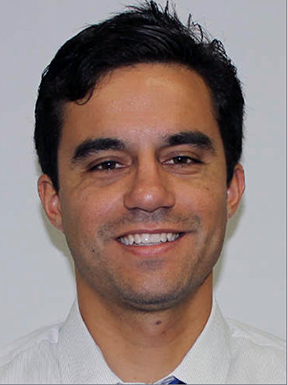Fighting against Fake News
USC Annenberg students with Brian Hanley at Internews - Bangkok, Thailand.
Journalism is under attack.
Whether it’s fake news, state-sponsored propaganda or disinformation warfare, the threats facing news consumers and media organizations across the globe are diverse and seemingly boundless. News models are failing. Media landscapes are constantly shifting. In the 24-hour news cycle, this morning’s headlines are simply an afterthought by the afternoon.
Internews works on the front lines to help reporters publish journalism that is timely, accurate, independent and powerful.
Arming journalists with the tools they need to produce original reporting, the non-profit organization operates in regions where access to information is limited and reporters are often viewed as enemies of the state, rather than hard-working citizens fighting to uphold one of the pillars of a peaceful and free society.
“Internews strengthens the capacity of journalists across the globe and gives millions of people access to accurate information that strengthens communities and improves lives,” said Brian Hanley, Asia Director of Internews. “We make sure high-quality content is produced at the local level in sustainable models that will inform, educate and engage.”
Hanley, who overseas media development programs from the organization’s offices in central Bangkok, met with 14 University of Southern California students participating in USC Annenberg’s Alternative Spring Break Program in Thailand this past March.
Founded in San Francisco in 1982, Internews has grown from a small production studio to an internally-renowned non-governmental organization with an increasingly ambitious agenda — providing residents living in some of the world’s darkest corners with the tools and resources they need to shine a light on stories that would have otherwise been forgotten.
Whether it’s covering environmental catastrophes, human rights abuses, women’s issues, refugee crises or regional poverty, Internews spearheads initiatives that empower journalists to cover important stories more effectively. The organization provides journalism curriculum to schools, publishes content online and engages new audiences.
Journalism produced with the help of Internews is consumed in all corners of the globe — from handheld radios in the Saharan desert to small television monitors in the mountains of Afghanistan and websites accessed through VPNs in China.
The work of Internews comes as governments continue to crack down on press freedoms.
Censorship is used as a tool to control dissent by authoritarian regimes. Jailings, beatings and even murders of journalists are common. In Thailand, ten journalists have been killed for their work since 1998, according to the Committee to Protect Journalists.
Despite the threats against journalism, residents living in southeast Asia and other parts of the globe afflicted with censorship place a high value on accurate information that has not been filtered by government, Hanley said.
“We see residents in countries we work are committed to overcome restrictions on speech and the press,” Hanley said. “Journalism today is more important than ever.”
Doug Mornio
is a graduate student at USC Annenberg, pursuing a master's degree in Communication Management. A former journalist, his work has appeared in newspapers across Southern California. Doug is currently a communications manager for the Roman Catholic Diocese of Orange, home to one of the largest and most diverse faith communities in the U.S. His academic and career interests are in communications, public policy and international diplomacy.



